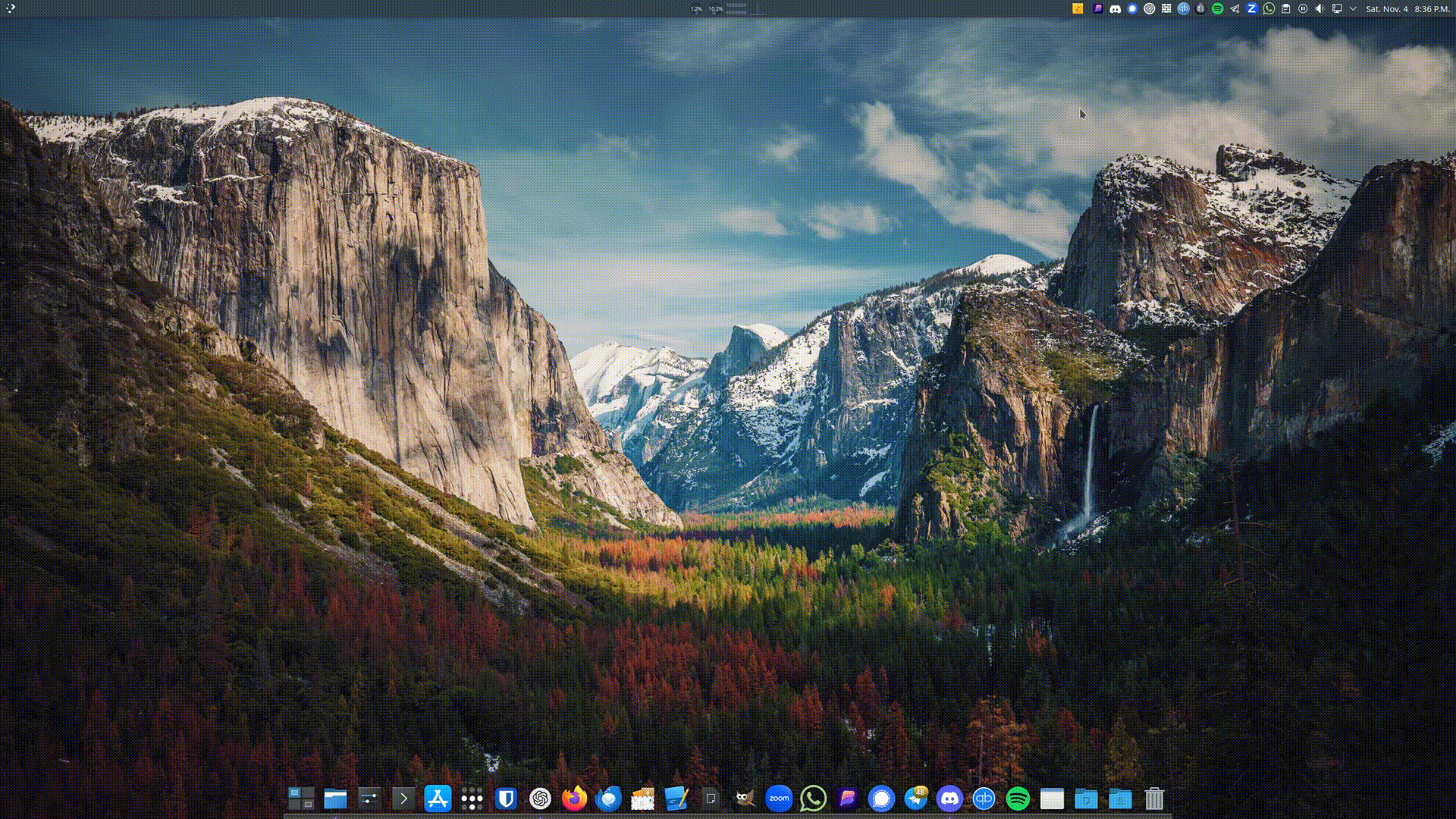![]()

![]()

Oh… I I know the problem. He’s try to inform us he is using AUR for their default App Store ![]()
Still kinda weird to me why we all don’t use Flatpak or something but AUR works I guess.
edit:
I’m talking about the idea of unified packages repository, not flatpak vs aur.
Because of the ridiculously large spaces taken for small apps at first? (But flatpaks have become much more used than a few years ago, in reality)
Why the hell should we?
Just looking at Linux at large.
No unified “app store”, each distro, each repo, each iso are basically their own ideologies.
Just like how Steam Deck is good for Linux, a single “default” App store would be good for Linux on the long run.
Just like Manjaro and EOS both use AUR, why not everyone use Flatpak or why not everyone use AUR.
Just one, singular packages repos for everyone. You can still fork it but it’s still the same thing basically but without certain programs or something to keep it “libre” or for whatever else ideology each Distro opted in.
Just an idea.
I’m not talking about practicality. More like the idea of unified packages repository.
A think called Freedom.
Also because we are not Windows who assumes everyone wants the same thing. I have not nor will I use flatpaks snaps or appimages. I’m old and I’m used to the way things were. I dont’ need a “Store” for someone to monitor my computing behavior. I don’t need big brother to hold my hand.
If everyone uses AUR would AUR become a big brother?
I’m not actually talking about picking Flatpak over AUR. I’m talking about unified Packages repos.
Like what Ubuntu is to plenty of Distro out there. Like what Arch is to Manjaro and Endeavour. I don’t think anyone from either Manjaro and Endeavour feels less freedom when in fact both of them just Arch layered with packages created by each of their own Distro developer.
First the Aur is managed by individuals not a corporation. Second you do not need an account to use the AUR as you would with a store. With the Aur I get to see what is being installed on my computer.
I may be mistaken but with PKGBUILDs from AUR, one can see that there are some stuff, originating from some source, being installed in some places in the system.
To know for sure what is being installed and run on the system, I guess one needs to go to the source and audit the code.
I’m “code-illiterate” so, in my use case, there is always some element of trust involved.
I don’t remember Flatpaks or snapd for that matter requires an account.
Not that I don’t trust individuals but I’d prefer collective efforts like EndeavourOS, with teams, community with accountability. (Hm, but I think AUR works similarly to EndeavourOS, so collective efforts). But we’re straying from the topic, but I do understand your point.
I think the driver/propietary code within Linux kernel is bigger problem if your concern is privacy, no? Wouldn’t Libre-kernel would be better to ensure binary blobs from Big corpos as to ensure no way for them to track your data etc.?
I don’t know about snaps, but for installing flatpak apps you don’t need any account.
Freedom and diversity in the software world
Unified package repositories/managers implies that they need to be a jack of all trades, when clearly many of them have their flaws. They will not only be a master of none, but suck at many.
We need less reskins of distros and actual operating systems. We need less Ubuntu forks with a reskin and more independent systems. It is thanks to that freedom that we have so many unique distros that suit different needs (or most of them).
Are there some kind of GUI AUR version out there? I remember a pacman GUI which can track which packages that installed to your system, but it would be very useful to see the comments under each packages because often times it solved the problem for me when a package failed to install.
I never said they did. We were talking a Store? this would be my concern of needing an account to get stuff from a “Store” no matter the medium. My point with individuals is that they are volunteers not a Corporation who can afford to pay people to “run the site” and thus monitor all activity to the site.
I guess there is some variant of pamac where you can enable AUR as well but I don’t think you could read comments in there.
There is also bauh:
https://aur.archlinux.org/packages/bauh
Again, for reading the comments for a specific package from AUR, I don’t know if you can do it in bauh either.
Hmm… since I am not a programmer, I am assuming each packages uses different method to package their software, yes?
Would a some-kind of unified .deb for all distribution works or there would be a fundamental problem for all distro to use a single software programs? (Apologize if I use a layman language here, but I am a layman)
edit.
I suddenly remembered about appimage.
Ah I see.
I am not disagree with you about that. But there are interesting topics about sustainability of open source development I recently watch, regarding how Big Corpo could “help” open source development.
This is assuming we all want the same thing and if we did then there wouldn’t be so many distro’s . We are not all the same and as you cannot approach us all the same you cannot treat all Gnu/Linux the same.